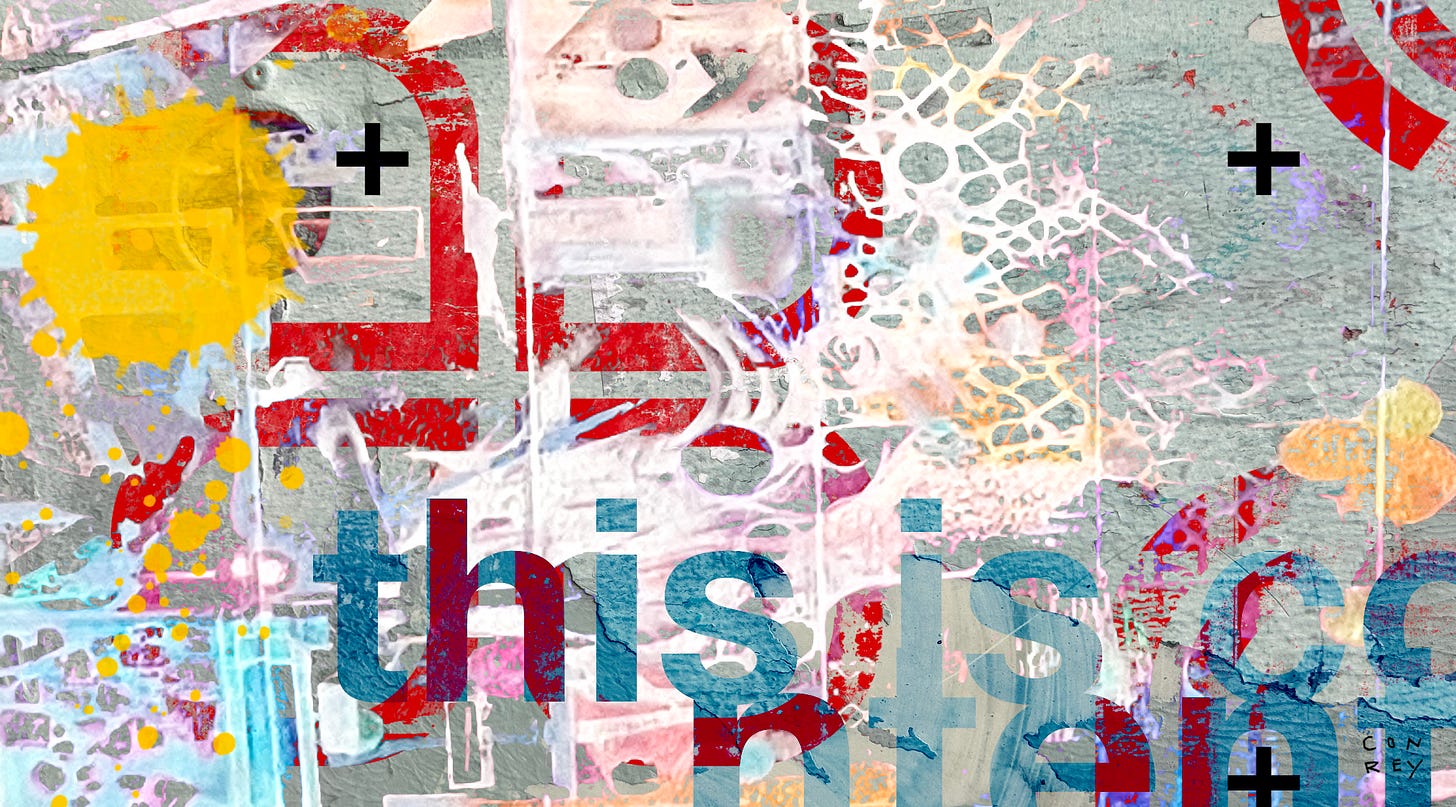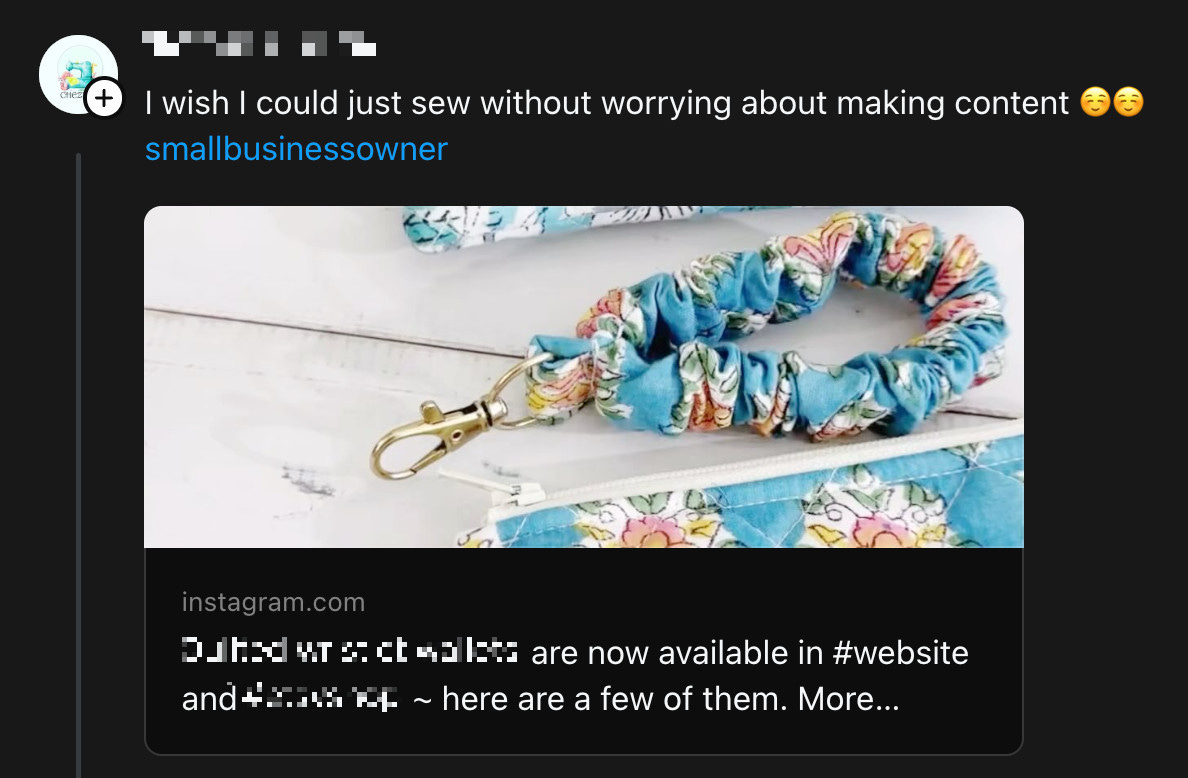Words are Agnostic
I'm a content creator, and it's ok not to like that phrase, but I'm not changing it.
While in a video call with some of the artists in my online community, I mentioned that I need to update the welcome sequence for The Hungry because it’s a little out of date and perhaps not used as effectively as possible, and while in mid-thought about it, I had this epiphany that the world welcome was an inappropriate term for the action that takes place once someone subscribes to my list.
A welcome email sequence is a way of introducing ourselves to new subscribers through automation. Depending on the email list publisher, they can be a single email or several.
I’m writing an in-depth post about this for The Hungry to come out after the holidays, but the gist is that we usually welcome others into our private spaces, but in the case of email, I’m the one being invited into the private space of others. The subscriber is welcoming me, and it’s my job to provide the value and benefit to them by allowing that to happen.
Instead, I’m now referring to this process as a benefit or value sequence because the responsibility is on me to make the reader understand the value I’m trying to bring to their inbox.
I shared that idea on Threads and within the community. One member shared that they appreciated the idea and were considering alternative phrases like gratitude or rapport sequence because the word value made them cringe based on their professional trauma.
I thought that was interesting, and for a half-second, I considered changing the phrase to gratitude (it’s a great word), then remembered that it’s ok if I like the word even if it doesn’t suit their style.
The phrasing is less important than the intention
Shakespeare hated the limitation of words so much that he made up his own, over 1,700 words that we still use in English today. He essentially invented a new way to speak the language, and all of Britain accepted it.
I’ve always had a casual interest in sociology, and it’s fascinating how actions on the Internet have changed, not only how we speak to each other but also how we judge the words people use.
NOTE: This is NOT a conversation about pronouns—stop it! People can refer to themselves however they choose; complaining about it is childish.
As a creative, though, I’ve noticed that other creatives have an aversion to certain types of jargon, which is ironic considering some of them describe their work in the most obsequious manner.
“My work, a kaleidoscopic waltz of ephemeral light and shadow, seeks to unravel the ineffable poetry of existence, tracing the tender fractures where the sacred and the profane embrace in a luminous symphony of human yearning.” - I asked ChatGPT to come up with a colorful artist statement, and this is what it spit out.
If words could speak back, they would tell us they do not care about how we interpret them. Words are agnostic, but humans are the ones that give them religion, and just like religion, there are numerous interpretations around what words mean, but that doesn’t make it real.
Misplaced sensitivity toward syntax
I choose words that make the most sense to me and the context of the content, but rarely do I consider how someone might feel about a particular word choice
If my friend from the example above prefers to use another word in place of value for their content, more power to them, but if I don’t like using the new word, that’s my problem, not theirs. It’s not their responsibility to consider my feelings on something so benign.
Of course, some words have terrible power, and we should be wary of using them, but most words don’t carry that much weight.
If there’s a word that gives you the ick, then don’t use that word, but make sure whatever you replace it with makes sense in context to whatever you’re sharing. If you use colorful word choices that don’t make sense to the reader, you risk creating a disconnect between them and may lose their attention.
Regrettable feelings around choice words
The mere mention of the phrase business jargon will send most people into a spiral as their eyes roll backward. Many creatives have expressed to me how much they hate the word content, and they’ll do so after sharing several posts on Threads and WIP photos on Instagram.
If you don’t prefer the phrase content creation, use something else, but you’re posting on social media; you’re sharing content whether you like the phrase or not.
Here are some other choice words and phrases:
Creatives - I use this word often because it’s much easier to say than to try and speak to each subset individually. Do you make things? Do you use your brain when doing it? Awesome! You’re a creative—get over it.
Lead Magnet - Online marketing bros are responsible for making this one ugly with their constant pitch of free guides given with the sole intention of upselling you to their mastermind program. If we remove that context, though, the phrase means attracting new audience members with a unique offer and potentially converting them into customers. This is no different than the Lulu Lemon coupon codes you got after joining their email list.
Sales Funnel - Another winner spoiled by the business bros, but again, if we remove that context, what we’re left with is a flow-chart that helps send new people through your online purchase system and, if done well, can turn them into rabid fans that recommend you to all their friends.
Entrepreneur - In the 80s and 90s, using this phrase meant you were an out-of-luck inventor trying to find your investors or an MLM fanatic looking to increase your downline on the promise of riches and a pink Cadillac. The phrase has matured today, but so many creatives are still repulsed by it. They are business owners but don’t want people to know that about them.
If we look at these words objectively and remove the bias, we can see beyond the pretense. If we don’t like the words being used, we are welcome to different ones, but keep our opinions to ourselves about whether the words are good words or not.
Now, I’m off to look for more phrases to ruffle people’s feathers. If you know any, reply to this message directly or in the comments below the post.




